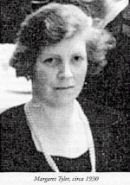PRACTICE teaches us that a single one of these smallest doses will, perhaps, in some very light cases of disease, especially in small children and delicate and very susceptible adults, be sufficient to do all that medicine so far can do; that, however, in other cases, indeed in most cases of continued as well as too far progressed, often by previous drugging complicated, as also in grave acute diseases, plainly such a minimum dose of a remedy, even in our highly dynamized potency, is insufficient to produce all the curative effects which we can possibly expect to be produced by this same remedy; for here it is undoubtedly necessary to give several of such small doses, so that the life- force may be pathogenetically changed to that degree, and the curative reaction so increased that it may be enabled to eradicate all of the original disease, which the well-selected homoeopathic remedy has the power to eradicate and completely obliterate the same through its counter action. The best-selected remedy in so small a dose, given once only, would give in some cases some relief, but not by for enough.-SAMUEL HAHNEMANN, 1833.
HOMOEOPATHIC DOSAGE
PRACTICE teaches us that a single one of these smallest doses will, perhaps, in some very light cases of disease, especially in small children and delicate and very susceptible adults, be sufficient to do all that medicine so far can do; that, however, in other cases, indeed in most cases of continued as well as too far progressed, often by previous drugging complicated, as also in grave acute diseases, plainly such a minimum dose of a remedy, even in our highly dynamized potency, is insufficient to produce all the curative effects which we can possibly expect to be produced by this same remedy; for here it is undoubtedly necessary to give several of such small doses, so that the life- force may be pathogenetically changed to that degree, and the curative reaction so increased that it may be enabled to eradicate all of the original disease, which the well-selected homoeopathic remedy has the power to eradicate and completely obliterate the same through its counter action.

